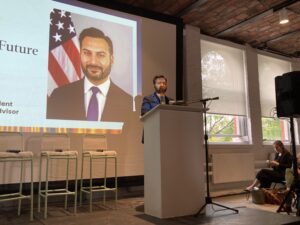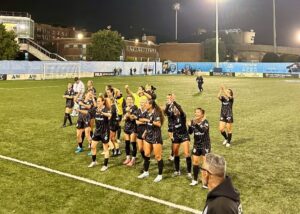By Melinda Rolls
To celebrate the launch of the five-part “Que Pasa, Long Island?” podcast that chronicles a landmark housing-rights victory for Latino immigrant residents in Farmingdale, a panel discussion was held at Hofstra University’s Maurice A. Deane School of Law Feb. 27 featuring Hofstra faculty and residents behind the legal battle.
The podcast and the presentation were co-productions of the Law School, the Lawrence Herbert School of Communication and the National Center for Suburban Studies.
The podcast, all five parts of which can be found at the end of this story, marks the 10th anniversary of the Secatogue Nine federal fair housing court case that overturned the eviction of Latino immigrants living in Farmingdale.
The case involved a lawsuit filed in 2006 by nine Latino immigrant residents who lived in apartments on Secatogue Avenue.
“With these problems that we had, we didn’t have a voice or a vote,” said Secatogue Nine member Isidoro Rivera in Spanish, who came to the U.S. from El Salvador. “We didn’t know what to do.”
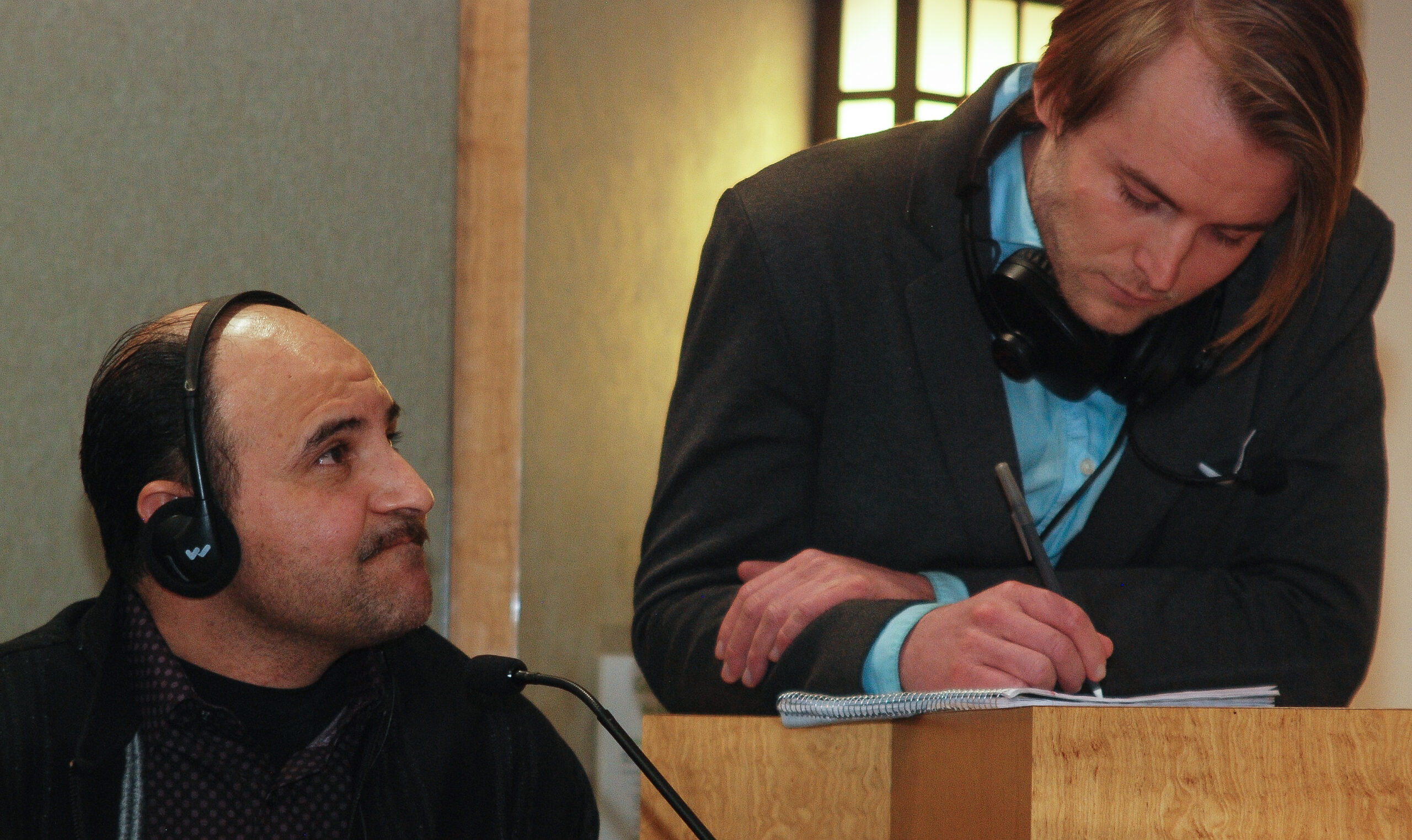
Following the expansion of the Latino population in Farmingdale from a rise in immigrant workers, 150 Secatogue Ave., a 54-unit apartment building, became the core of the village’s Latino immigrant community.
The nine Secatogue residents filed a suit against the Village of Farmingdale, claiming they were unfairly evicted from one of the only affordable apartments in Farmingdale because of the property’s redevelopment into upscale apartments.
Speaking in Spanish, Ana Maria Mora Gomez, a member of the Secatogue Nine from Mexico, said, “My parents told me that the place where you pay rent and you pay taxes, that’s your land, and you need to fight for that because that belongs to you.”
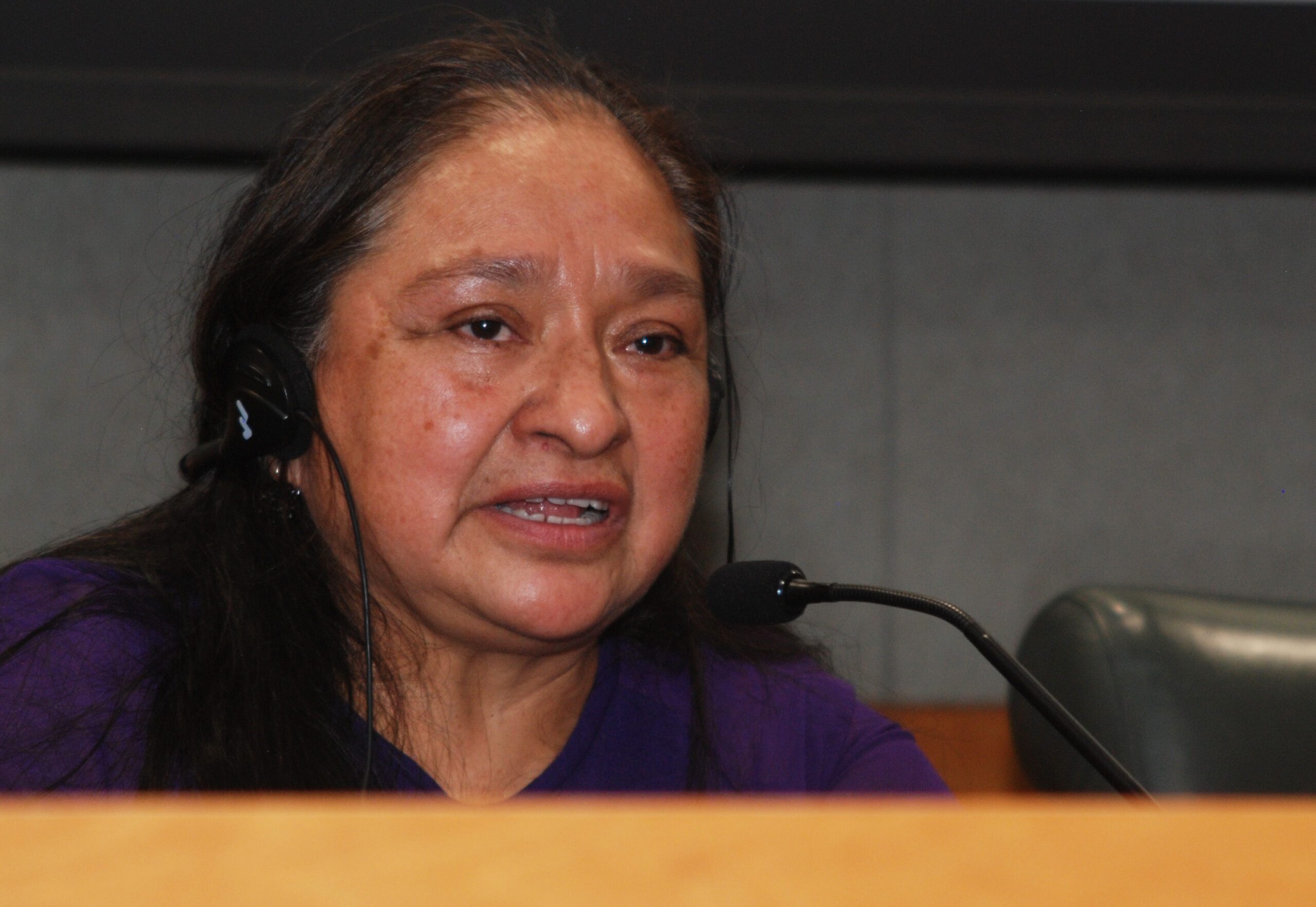
Spearheaded by Hofstra Law Professor Stefan Krieger, attorney-in-charge of the university’s Law Reform Advocacy Clinic, and worked on by over 100 Hofstra law students, the Hofstra Law Clinic lawsuit claimed the evictions were designed to drive Latinos out of the community.
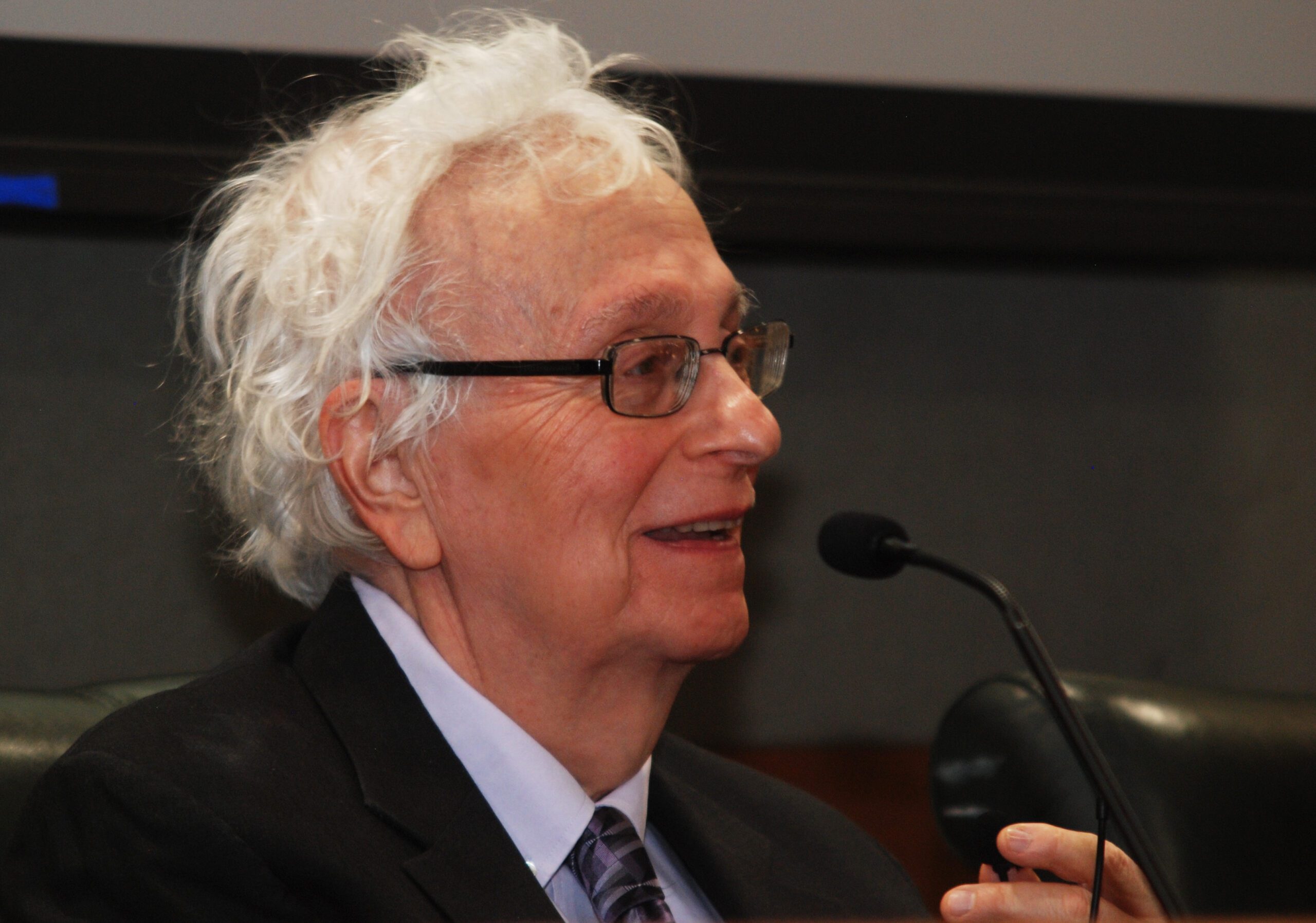
As Long Island experiences an increase of migrant workers, racial discrimination has been hidden in some evictions and community redevelopment by high-end developers, according to Hofstra University Sociology Professor Christopher Niedt.
“In at least some of the places that were trying to redevelop themselves as suburbs, people would use this positive image of redevelopment and its potential as a cover for trying to expel groups of people that were considered undesirable, at least by the White, long-time residents,” said Neidt.
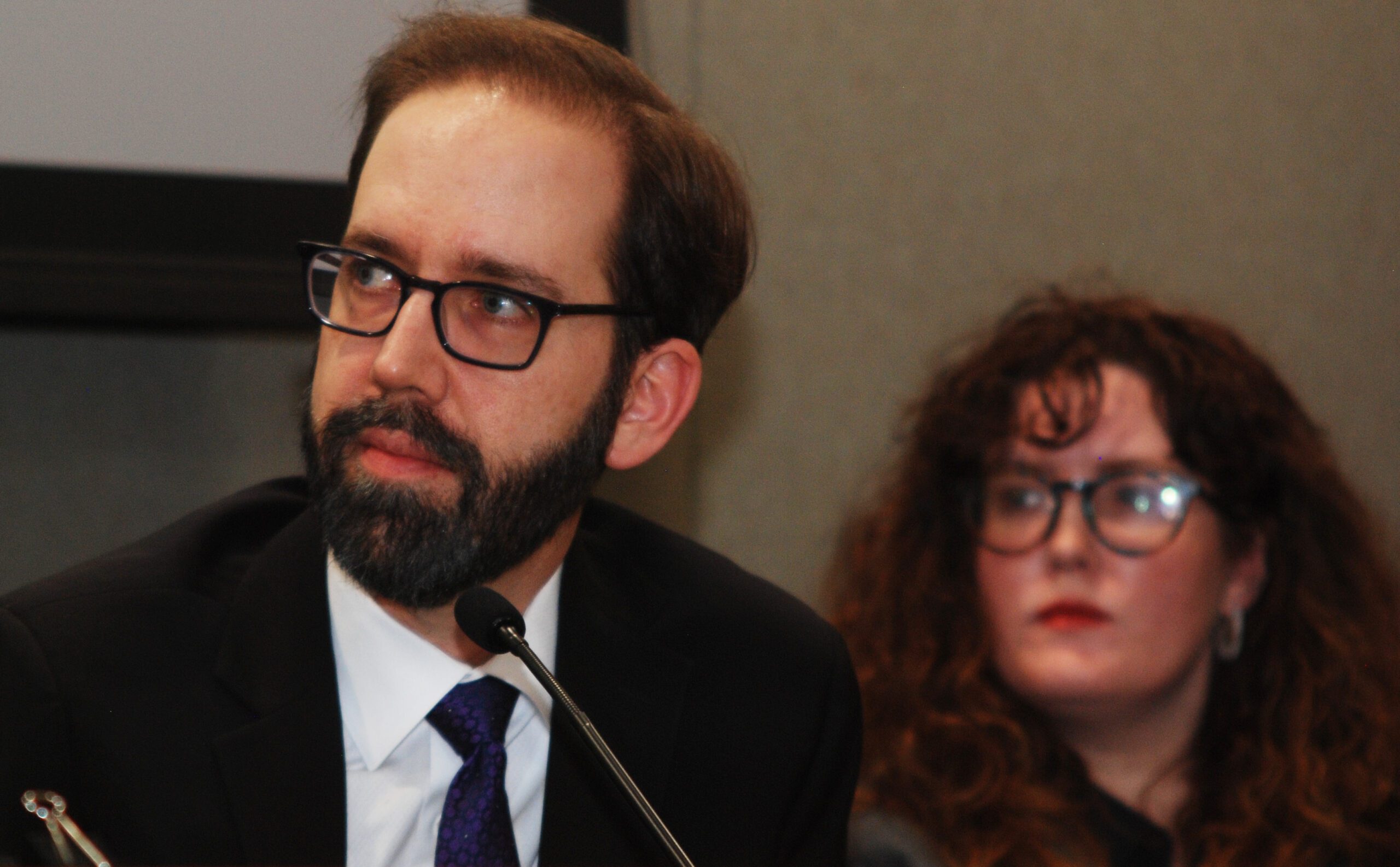
Throughout the five-part podcast, listeners hear how the families of Secatogue Avenue endured anti-immigrant sentiment in Farmingdale, and how they ultimately fought back against organized attempts to be removed from the housing complex.

“Whenever we hear about immigration, we hear the political pundits, very often with hateful language, or we hear experts talking,” said Mario Murillo, a Hofstra professor of radio journalism, media studies and Latin American studies. “But we rarely, if ever, hear the voices of the people impacted by these policies.”
The podcast considers the trauma the Secatogue Nine residents faced not only in leaving their native countries, but also upon arriving in Farmingdale.
“Residents experienced the trauma of living in a village where there were blog postings that were filled with hateful messages,” said Krieger. “They had to live in a building with sagging ceilings, with roaches, with mice, with mold. Then they had to live with the prospect of being evicted from the building.”
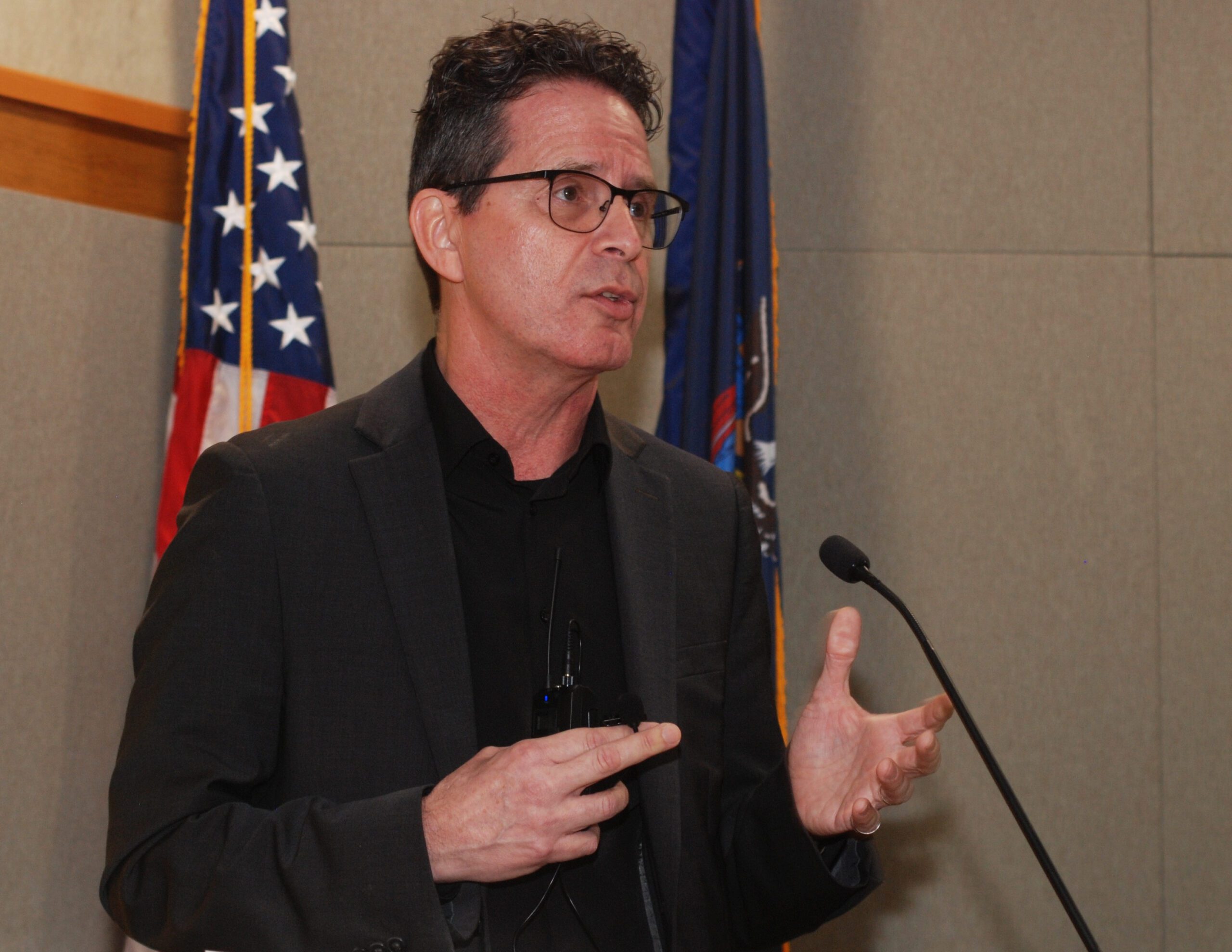
As part of the settlement with Farmingdale, the village agreed to build affordable housing units to replace those lost on Secatogue Avenue. A decade after the landmark settlement, a $35 million affordable housing development with 70 units will open in June in Farmingdale.
“This fight we’ve had, it’s been a long one,” said Gomez.
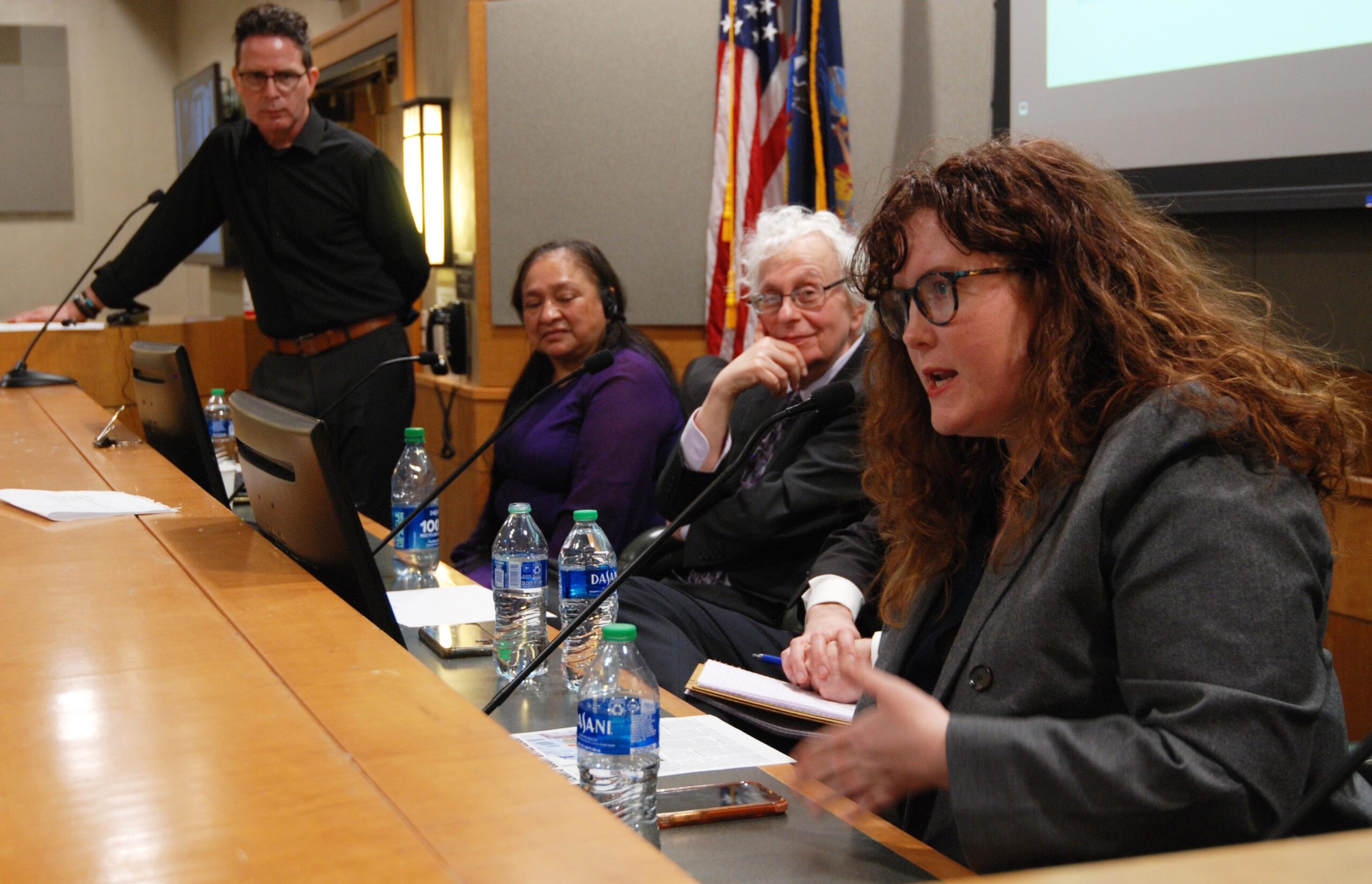
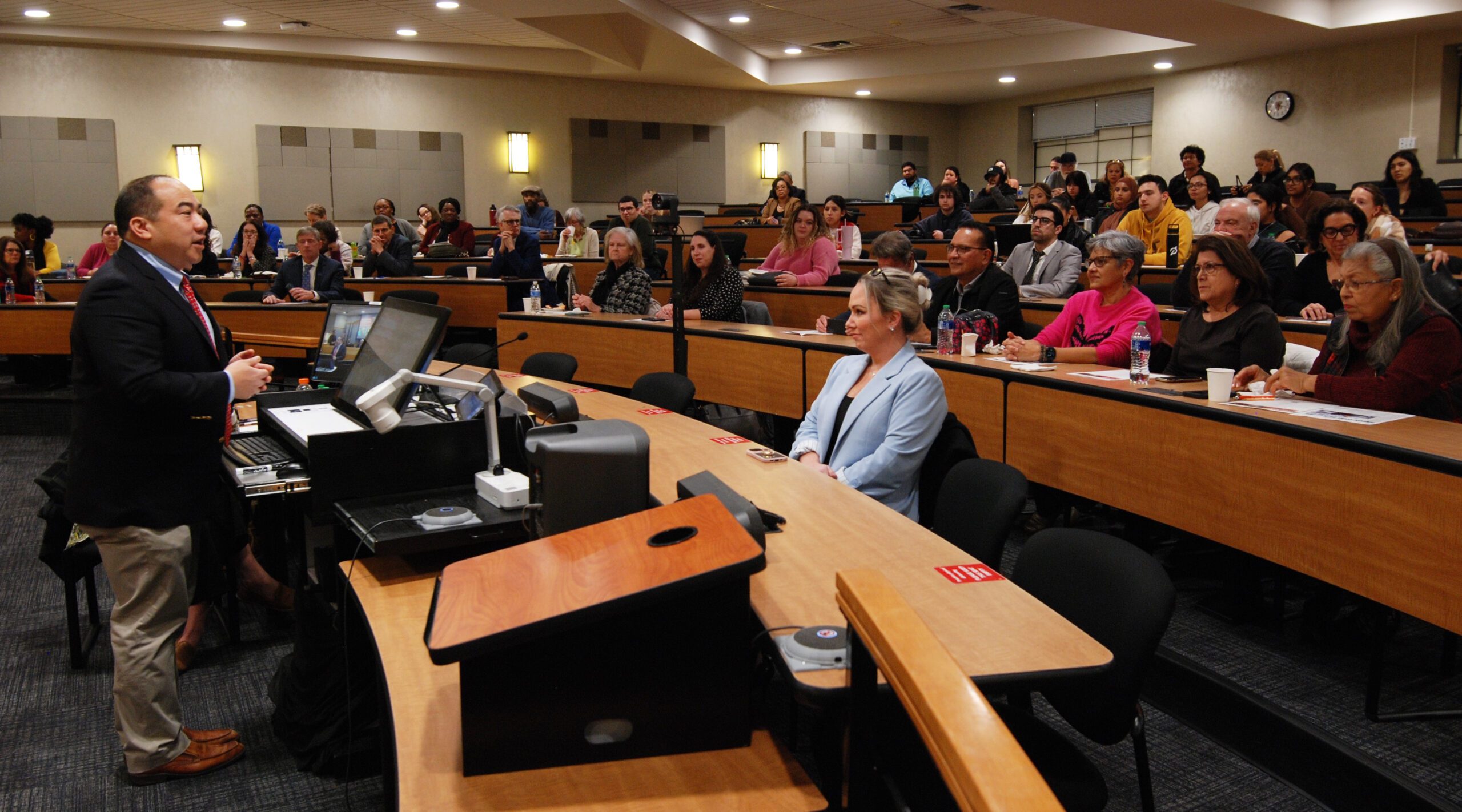
Listen to the podcast here:



